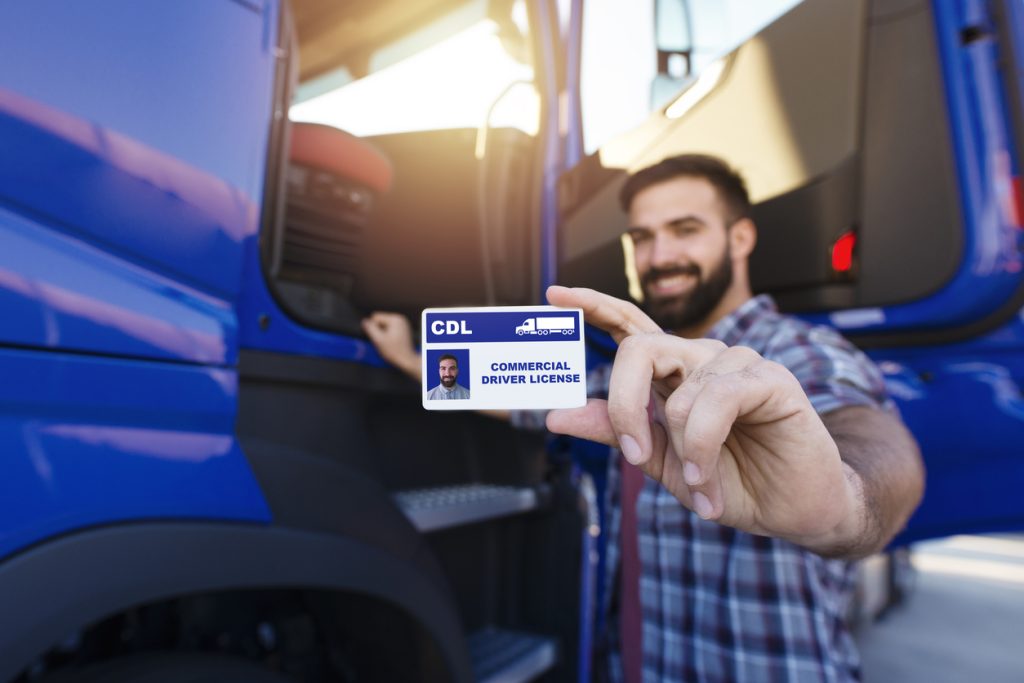The types of commercial drivers licenses in Oklahoma are categorized to reflect the vehicle’s size, weight, and cargo—but what many drivers don’t realize is that each class comes with strict, often overlooked rules. These lesser-known requirements can lead to legal issues, license suspensions, or disqualification if ignored. From overlooked weight ratings to misinterpreted endorsements and renewal timelines, this article takes a close look at the frequently missed regulations associated with every CDL class under Oklahoma law.
Whether you’re applying for a Class A, B, or C license, understanding these detailed rules is crucial. Failing to comply with them can impact your ability to operate lawfully, secure jobs, or maintain certification under federal and state transportation guidelines. This in-depth guide examines what drivers tend to miss—especially those new to the licensing process or transitioning between vehicle classes.
Why Compliance with Every Rule Matters Across the Types of Commercial Drivers Licenses in Oklahoma
Drivers are often surprised to learn that simply holding the correct CDL class doesn’t mean full compliance. The state of Oklahoma, following FMCSA regulations, requires CDL holders to obey a host of technical rules regarding endorsements, medical certification, logbook maintenance, and even how long you can hold a learner’s permit. These rules are tied directly to the types of commercial drivers licenses in Oklahoma, and ignoring them—even unintentionally—can carry serious consequences.
For instance, many new drivers are unaware that exceeding the 150-mile exemption zone for certain intrastate operations can instantly trigger the need for additional endorsements or a higher class of license. Others assume that because a vehicle is registered to a farm or business, certain rules don’t apply. These assumptions often result in fines, license downgrades, or insurance complications.
Understanding the Legal Foundation Behind CDL Classifications
Oklahoma commercial driver’s license laws are rooted in both state-specific regulations and federal standards outlined by the FMCSA. Each license class—A, B, and C—has narrowly defined parameters that impact daily operations, endorsements, and liability risks. For drivers navigating CDL applications or renewals, this comprehensive overview of the different _types of commercial drivers licenses in Oklahoma_** available** from the Oklahoma CDL classification blog helps clarify what many overlook when preparing to meet legal requirements.
Class A Licensing: Overlooked Weight and Combination Restrictions
Drivers pursuing a Class A license often assume it covers all possible trucking scenarios. However, specific limitations apply—particularly regarding the combined weight of vehicles and the trailer configuration. A common error is failing to ensure the towed unit exceeds 10,000 pounds, which is essential to qualify the setup under Class A. If not, the operator may be legally required to hold a Class B instead.
Another issue that goes unnoticed is when drivers operate triple-trailer rigs without the T endorsement. In Oklahoma, this detail falls squarely under the types of commercial drivers licenses in Oklahoma that mandate additional written exams and safety testing. Even seasoned drivers sometimes miss this technicality, putting their license and job in jeopardy.

Class B Rules: Passenger and Cargo Assumptions That Lead to Violations
One of the most common oversights with Class B license holders is misunderstanding what qualifies as a single-unit vehicle. Drivers often assume they can haul any type of cargo in dump trucks or buses without further scrutiny. But when these vehicles carry passengers or hazardous materials, the required endorsements shift dramatically.
For example, a bus driver transporting more than 16 people—even during school or private charter operations—must obtain both the Passenger (P) and School Bus (S) endorsements. Many assume a Class B license covers these responsibilities by default, which is a dangerous and costly misunderstanding. These nuances are embedded deeply in the way Oklahoma enforces the types of commercial drivers licenses in Oklahoma and are strictly monitored during roadside inspections and audits.
Class C Missteps: Underestimating the Complexity of Light-Duty Commercial Vehicles
Because Class C is typically used for smaller vehicles transporting hazardous materials or more than 16 passengers, drivers often think the requirements are simpler. In reality, Class C licenses are governed by some of the most complex rules related to endorsements and compliance.
A critical but often ignored rule is the federal requirement for a Security Threat Assessment when applying for a Hazardous Materials (H) endorsement. This includes a TSA background check and fingerprinting. Drivers frequently miss this step, assuming it will be covered during the DPS testing process. That misunderstanding can result in denial of the license or endorsement—even after passing the written exams.
This is just one of many nuanced requirements buried within the types of commercial drivers licenses in Oklahoma that can catch drivers off guard, especially those coming from non-commercial or intrastate roles.
Commercial Learner Permit (CLP) Time Limits and Common Violations
Many new drivers don’t realize that the Commercial Learner Permit (CLP) is only valid for 180 days and can be renewed only once. After that, the driver must restart the entire process. This includes retaking the general knowledge exams and reapplying through the Oklahoma DPS. Unfortunately, it’s common for applicants to let their permits expire while awaiting employment or testing appointments.
This delay becomes a major issue because CLP holders cannot operate commercial vehicles solo. They must be accompanied by a licensed CDL holder in the front seat. Violating this requirement constitutes an offense under Oklahoma law and can disqualify the driver from future testing for a period of time. Such violations stem from misreading the responsibilities connected to each of the types of commercial drivers licenses in Oklahoma and can have long-term consequences.
Medical Certification Oversights for All CDL Classes
Medical certification is mandatory across all CDL classes. Yet many drivers forget to keep their Medical Examiner’s Certificate current or fail to submit it to the Oklahoma DPS in time. If the certificate expires, the license is automatically downgraded, which may result in immediate job loss or legal liability.
The FMCSA maintains strict requirements for physical qualifications, and disqualifying conditions include insulin-dependent diabetes (unless certified under the waiver program), seizures, and uncorrected vision issues. Every driver—regardless of which of the types of commercial drivers licenses in Oklahoma they hold—must submit updated medical information every two years or risk license invalidation.

Intrastate vs. Interstate Misclassifications
Another frequently overlooked rule concerns the designation between intrastate and interstate driving. A CDL issued for intrastate-only use does not permit crossing state lines, even temporarily. Many new drivers violate this rule unintentionally by taking short runs into Kansas or Texas without the proper license.
This error is common among agriculture and oil field drivers who believe that operating close to the border is acceptable. However, the FMCSA makes no such allowances. The correct designation must be declared at the time of application and confirmed through documentation. As a result, understanding this distinction is essential when applying for or upgrading any of the types of commercial drivers licenses in Oklahoma.
Endorsement-Specific Rules That Are Easy to Ignore
In addition to the major endorsements (P, S, H, N, and T), Oklahoma enforces endorsement-specific requirements that many drivers skip. For example, Hazmat endorsements must be renewed every five years and require a full retest—not just a renewal fee. Similarly, the Tank Vehicle (N) endorsement requires knowledge of surge dynamics and rollover prevention, which are not part of general CDL training.
Neglecting to review or retest for these endorsements leads to automatic removal from the license, rendering the driver unqualified for certain job functions. This is especially critical in oil and fuel industries where misclassifications pose safety and compliance risks. These overlooked rules are fully embedded in how Oklahoma interprets and applies the types of commercial drivers licenses in Oklahoma to vehicle operations.
Consequences of Overlooking CDL Rules in Oklahoma
Violating these lesser-known rules can lead to fines ranging from $1,000 to $10,000, disqualification from driving, or loss of employment. Drivers who operate without valid endorsements or medical documentation can also face civil liability if involved in a crash.
The Oklahoma DPS uses digital monitoring through the CDLIS (Commercial Driver’s License Information System), which flags inconsistencies in endorsements, vehicle operation, and renewal status. In other words, cutting corners or missing details isn’t just risky—it’s documented and traceable.
To better understand these licensing rules, review the FMCSA’s CDL regulations and definitions which outline vehicle classifications, medical requirements, and endorsement rules applicable in Oklahoma.

Summary: Knowing Every Rule Behind the Types of Commercial Drivers Licenses in Oklahoma
Each of the types of commercial drivers licenses in Oklahoma includes its own legal boundaries, rule sets, and compliance challenges. Drivers who overlook them—whether during application, renewal, or operation—are exposed to unnecessary legal risks, disqualifications, or employment setbacks.
Whether you’re operating a straight truck, school bus, fuel tanker, or a passenger van, it’s not enough to simply hold the correct license class. Endorsements, certifications, and activity limitations matter—and so does full awareness of renewal timelines, background checks, and operating boundaries. Knowing what’s frequently missed gives drivers a legal and operational advantage.
For more information on which vehicles are restricted from rideshare platforms, particularly after being disqualified under commercial licensing issues, you can explore this in-depth breakdown of cars disqualified from Uber and Lyft in Oklahoma, which discusses commercial vehicle limitations and regulatory red flags.
